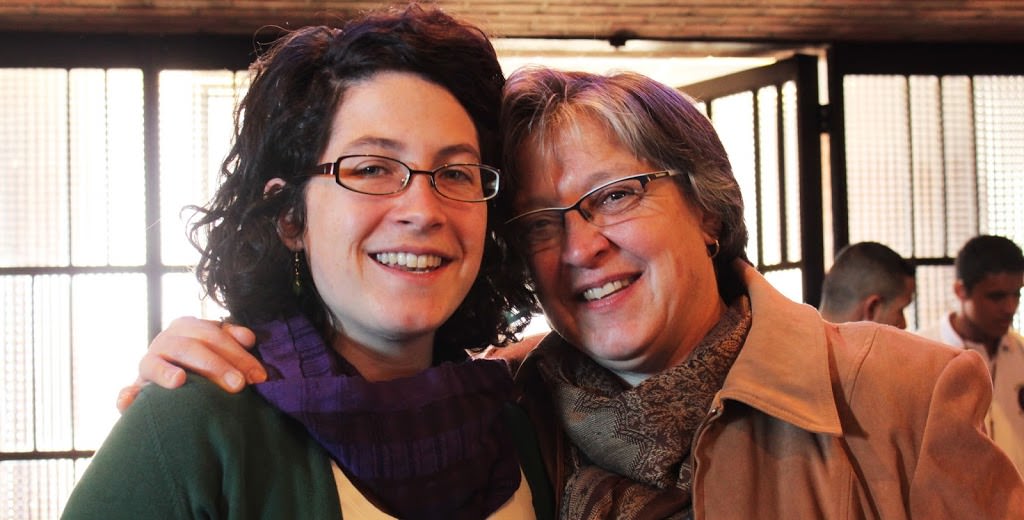Mission Monday: Mother and Community Love

For this Mission Monday post, Missioner Annemarie shares a story of the pain of a mother’s love and the healing power of a supportive community.
 |
| Missioner Annemarie with her mom before she leaves for Bolivia. |
In the CEB that I have come to know in the northern zone of the city, there is a woman who has recently been dealing with significant issues with one of her sons. He is young, just out of high school I believe, and is in love with his also young girlfriend. His girlfriend’s family has moved to another country in Latin America and her son decided he wanted to follow her. Through a series of very intense situations with her son, the family finally decided to let him go, to move, to leave his own family.
Her pain and worry have been visible every week that we have met, and each week we share prayers for her son and place a picture of him in the center of our table. As a new member of this community, I have been deeply moved by the example of the other women in the community and how they have accompanied this mother during this time especially.
Each week when we gather I have watched them gently ask her questions about the situation to better understand her suffering. I heard that they held a prayer service in her house, gathering together to pray for her son and be with her and their whole family. I have also watched them surround her with prayers and share their own experiences of struggles with their own children.
This past Saturday during the Cena Pascual, this mother and I had time to talk just the two of us. We discussed again the situation with her son and how hard it has been on the whole family. In the midst of this conversation, she told me how much it means to her that me and the other Maryknoll sister are a part of the community.
The sense that I got was that our presence was what meant the most. And we discussed how important it was to remember that she was not alone, that she is surrounded by this whole community. And I was able to express how special and vital I thought it was for our community to be a space where we can come together and be reminded that we are not alone, that these are struggles we share. And especially, how important it is for her to be surrounded by other mothers and other people who share her faith.
This time accompanying her and the whole community has only reinforced for me our specific mission of presence as Franciscans, one that reverences the wisdom of those who suffer, those communities that already exist that evangelize us as lay missioners. It reminds me that in the midst of my own doubts about my adequacy in accompanying this community I am invited into the humility of listening and observing their faith and thus draw closer to them and their lived experience.
It makes me think back to Leonardo Boff’s book about Saint Francis and how Francis was an example of someone whose presence and way of communicating allowed him to treat people in a way that humanizes and liberates. The women and this community have modeled for me what it means to be present and to communicate in a way that humanizes and liberates by the way that they have welcomed this mother and accompanied her in her struggles.
During this time especially when I am still very new in this culture and this language, and also this community, this experience has reminded me that this newness is an opportunity to learn from these local communities, to learn from their wisdom and experience. This community has offered for me an example of living from one’s faith. They consistently turn to God and to one another in the midst of this struggle and recognize the importance of coming together in that process.
And since I first met them, they have referred to me as “hermanita” or “little sister.” I had become worried when they first called me this, scared that they had misunderstood my identity, that they had assumed falsely that I was also a vowed religious sister like the Maryknoll sister they already knew. I took care to gently re-explain that I am a lay missioner not a vowed religious, that I am a layperson just like them. But soon I found that they each call each other “hermana” or “sister.” I quickly realized that each woman in the community is referred to as “hermana,” that we are all sisters, mutually. Again I was invited to learn from their example, to accept their invitation to draw closer as an “hermana,” to leave behind my own conceptions of that title and come to know what that identity means to them, what it can mean to us.
Tagged in:
